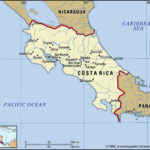Finding a notary public when you need documents notarized can sometimes feel like a scavenger hunt. You might assume it’s a straightforward task, but as one person recently discovered, that’s not always the case. This experience highlights the common question: where exactly can you get things notarized, and what should you expect?
Let’s dive into a firsthand account of a less-than-ideal attempt to get a will notarized at a UPS Store, followed by a guide to ensure your notarization process is much smoother.
The UPS Notary Fiasco: A Cautionary Tale
“I needed to get my two-page will notarized, which also required two witnesses,” recounts the individual. Their first thought, like many, was to visit their bank, assuming free notary services would be readily available. However, they were met with the common reality of understaffing and unpreparedness. “Turns out no bankers at my bank had their notary license, and the manager, who did have one, was ‘away.'” This initial setback led them to UPS, a place often advertised for notary services.
Upon arrival, the experience only devolved into further chaos. Despite being told that witnesses and notary services were available, the reality was far from efficient. “Employee A,” as the narrator describes, was not a notary himself, leading to miscommunication and confusion. After explaining the need for both witnesses and a notary, it became clear that only one notary was on staff, presumably the manager.
The situation became increasingly disorganized. Employee B, initially presented as a witness, promptly left for break, leaving the customer stranded. “So now I’m just standing there like…” they described, perfectly capturing the growing frustration. The notary then disappeared to find a replacement witness, leaving Employee A to manage a growing line of customers.
When the notary returned with “Employee D,” the process was rushed and unprofessional. “The notary never checks my will, never checks my ID, and doesn’t make me sign a notary log… which is stupid.” This lack of adherence to standard notary procedures raised serious concerns about the validity and legality of the notarization.
Adding to the absurdity, the notary incorrectly stated that witnesses weren’t there to witness the signing, contradicting the very definition of a witness. Despite the customer correcting this misconception, the process continued with Employee D signing incorrectly, initially using his email address instead of his physical address.
Finally, after navigating the employees through the correct procedure, came the unexpected financial blow. “Oh, btw, you have to pay 5$ for each witness signature, so that’s $20,” the notary announced, a fee never disclosed earlier. This last-minute surprise, coupled with the overall incompetence and wasted time, culminated in a truly negative customer experience. “I honestly just laughed because it was so stupid, unprofessional, inefficient, and just plain bad customer service.”
The narrator, who themselves possesses extensive notary qualifications, concluded with a stark realization: “It helped me understand why there is no solidarity among NSAs and why some people will take any fee. We are not operating on the same level.” The entire ordeal underscored the vast difference in service quality and professionalism one might encounter when seeking notary services.
Where Can You Actually Get Things Notarized? Your Options Beyond UPS
This UPS experience, while frustrating, is a valuable lesson. It highlights the importance of knowing where to reliably get your documents notarized. Luckily, UPS is not your only option, and often not the best one. Here’s a breakdown of common places offering notary services:
1. Banks and Credit Unions:
- Pros: Often free for account holders. Convenient if you already bank there.
- Cons: Not always available, as seen in the opening story. Notary staff may be limited or have restricted hours. Service is typically for bank customers only.
2. Independent Notary Publics:
- Pros: Dedicated professionals. Often offer mobile notary services, coming to your location. More likely to be knowledgeable and experienced.
- Cons: Fees apply. You need to find and vet a notary.
3. Online Notary Services:
- Pros: Convenient, available 24/7. Good for remote notarization needs.
- Cons: May not be legal in all locations or for all document types. Security and privacy concerns should be considered. Fees apply.
4. Law Offices:
- Pros: Reliable, especially if you are already a client. Notaries in law offices are generally experienced with legal documents.
- Cons: Usually only for clients of the firm. May not be convenient or readily available for walk-ins.
5. Courthouses and Government Offices:
- Pros: Official and reliable. Sometimes offered as a public service.
- Cons: May have limited hours or availability. Primarily for official government-related documents.
6. Real Estate and Insurance Offices:
- Pros: Convenient for real estate or insurance-related documents.
- Cons: Usually limited to clients or transactions within their business.
7. Shipping and Business Centers (like UPS, FedEx, Staples):
- Pros: Widely available locations.
- Cons: Inconsistent service quality, as the story illustrates. Staff may be undertrained or lack experience. Fees may be unclear or surprise you.
Choosing the Right Place for Your Notary Needs
To avoid a similar frustrating experience, consider these tips when deciding where to get your documents notarized:
- Call Ahead: Always call to confirm notary availability, hours, and fees, especially at banks or shipping centers.
- Ask About Experience: For important documents, consider asking about the notary’s experience, particularly if they handle legal documents frequently.
- Verify Credentials: While not always necessary for basic notarizations, for peace of mind, you can ask to see the notary’s commission or verify their status online in some states.
- Understand the Fees: Be clear about all fees upfront, including any potential witness fees.
- Prepare Your Documents and ID: Have your documents completely filled out but unsigned, and bring valid photo identification.
- Know What You Need: Be clear about the type of notarization required (acknowledgment, jurat, etc.) and if witnesses are needed.
By being informed and proactive, you can significantly increase your chances of a smooth and efficient notarization experience, and hopefully avoid the kind of “hot mess” encountered at that UPS store.


